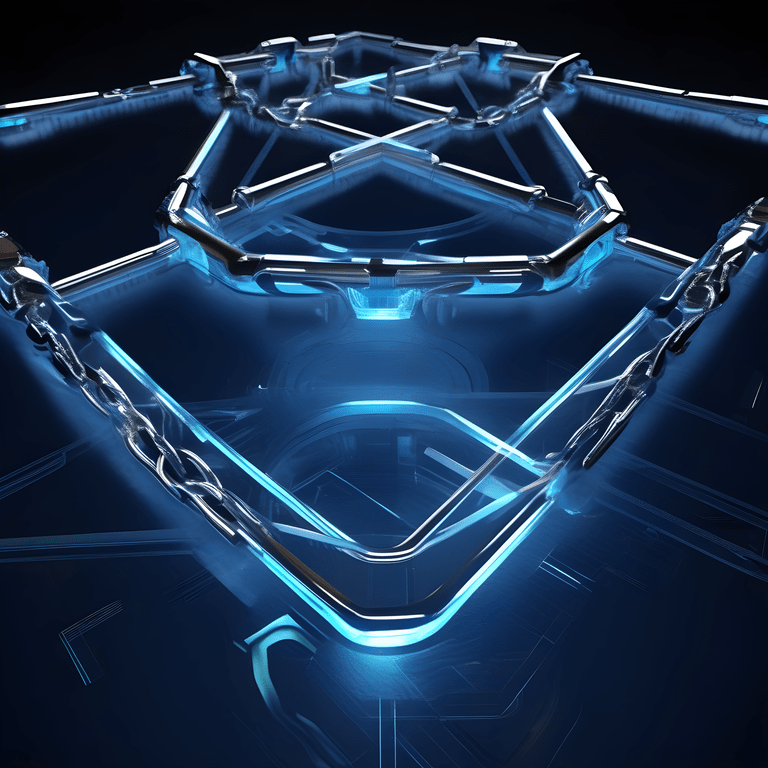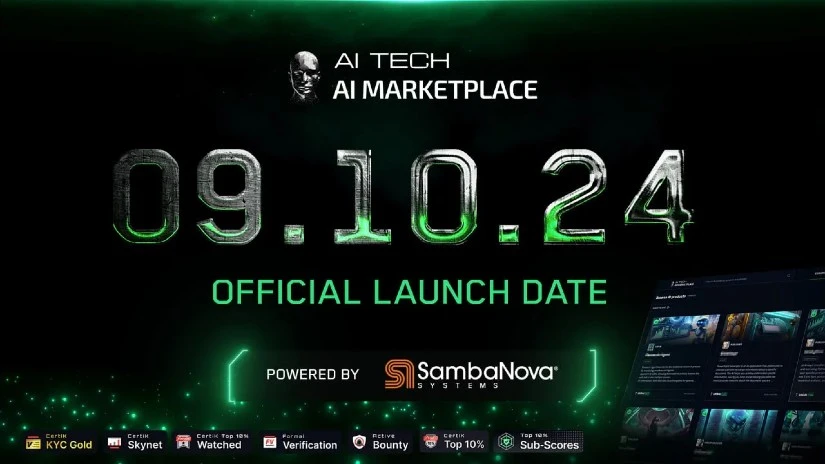As many good things the digital world has brought us, unfortunately, our information is constantly at risk. Without decentralized identity, everything we do online leaves a trail of data that savvy hackers can use, misuse, and ultimately steal.
From simply logging in or having transactions to interacting with others, we leave pieces of our digital footprint. There are, of course, methods of protection that are evolving regularly, following the ever-changing digital innovations.
That said, traditional methods of managing and securing our digital identities are becoming inadequate. As a way of protecting privacy, decentralized identity systems have appeared.
That’s something we’ll cover in this guide. What is decentralized identity, how does it work, and why is it essential for digital privacy? We’ll also discuss key concepts like self-sovereign identity, blockchain ID, and data protection.

What is Decentralized Identity?
In a decentralized identity system, users manage their own online personas independently of centralized authorities. Decentralized identification systems put individuals above traditional identity systems; which store and handle personal information by third parties (such as governments or companies). They make it possible for users to safely and discreetly manage and exchange their information.
Key Features of Decentralized Identity
- Self-Sovereign Identity (SSI): Individuals own and control their identity data.
- Blockchain ID: Utilizes blockchain technology for secure and transparent identity verification.
- Data Protection: Ensures personal information is safe from unauthorized access.
Decentralized identity is built on the principles of self-sovereignty, which means that individuals are the ultimate authority over their data. This is achieved through technologies like blockchain, which provide a secure and transparent way to verify identities.
How Does Decentralized Identity Work?
Decentralized identity systems use a combination of cryptographic techniques and blockchain technology. Here’s an overview of how it works:
- Creation of a Digital Identity: Individuals create a digital identity that includes personal information, credentials, and other data.
- Issuance of Verifiable Credentials: Trusted issuers (like educational institutions or employers) issue verifiable credentials that are linked to the individual’s digital identity.
- Storage on a Blockchain: These credentials are stored on a blockchain, ensuring they are secure and immutable.
- Verification and Sharing: Individuals can share their credentials with others, who can verify them through the blockchain.
Traditional vs. Decentralized Identity
Feature | Traditional Identity | Decentralized Identity |
Control | Centralized entities | Individuals |
Data Storage | Centralized databases | Blockchain and |
Security | Varies; often vulnerable | Enhanced through |
Privacy | Limited; data can be accessed by third parties | High; |
The process of creating and managing a decentralized identity is designed to be, transparent, and user-friendly. Blockchain technology ensures that the information is tamper-proof and accessible only to those who have permission.
Benefits of Decentralized Identity
Decentralized identity offers numerous benefits, particularly in terms of privacy and security. Here are some of the advantages:
- Enhanced Privacy: Individuals can control what information they share and with whom. This reduces the risk of breaches and unauthorized access.
- Increased Security: The use of cryptographic techniques and blockchain technology makes decentralized identity systems highly secure.
- Interoperability: Decentralized identities can be used across different platforms and services, providing a seamless user experience.
- Reduced Fraud: Verifiable credentials make it difficult for fraudsters to create fake identities or manipulate information.
These benefits make decentralized identity an attractive option for individuals and organizations looking to protect digital privacy and improve data security.
Challenges and Considerations
While decentralized identity systems offer many advantages, they also come with challenges. Some of the key considerations include:
- Technical Complexity: Implementing and managing decentralized identity systems can be technically challenging.
- Regulatory Compliance: Different jurisdictions have varying regulations regarding data protection and privacy, which can complicate implementation.
- Adoption and Integration: The success of decentralized identity depends on widespread adoption and integration with existing systems.
Challenges in Implementing Decentralized Identity
- Technical Barriers: Requires knowledge of blockchain and cryptographic technologies.
- Regulatory Issues: Must comply with data protection laws and regulations.
- User Education: Users need to understand how to manage their digital identities.
- Interoperability: Ensuring compatibility across different platforms and services.
Addressing these challenges requires collaboration between technology providers, regulators, and users. It also requires continuous innovation and education to ensure that decentralized identity systems are accessible and secure for everyone.
Real-World Applications of Decentralized Identity
Decentralized identity is already being used in various sectors, demonstrating its potential to transform the way we manage digital identities. Some notable applications include:
- Finance: Banks and financial institutions use decentralized identity to verify customer identities securely and efficiently.
- Healthcare: Patients can manage their medical records and share them with healthcare providers as needed.
- Education: Students can store and share academic credentials, such as diplomas and transcripts, with potential employers.
- E-commerce: Online retailers can use decentralized identity to verify the identities of buyers and sellers, reducing fraud.
These applications show the versatility of decentralized identity systems and their potential to improve security, privacy, and efficiency across various industries.
The Future of Decentralized Identity
Decentralized identity has a bright future ahead of it thanks to ongoing technological breakthroughs and rising awareness of online privacy. There will likely be an increase in demand for safe and open identification systems as people’s concerns about privacy violations and data breaches develop.
Future Trends in Decentralized Identity
Trend | Description |
Increased Adoption | More organizations will adopt decentralized identity systems |
Technological Advancements | Continued development of blockchain and cryptographic technologies |
Regulatory Support | Governments may develop frameworks to support decentralized identity |
Greater User Awareness | Increased awareness and understanding of digital privacy and data protection |
Technological innovation, legislative advancements, and user demand are anticipated to have a combined role in shaping decentralized identification systems. These technologies have the power to completely change how we maintain and safeguard our digital identities as they advance in sophistication and adoption.
Decentralized identity proved to be a significant shift in how we think about and manage digital identities. By putting control back into the hands of individuals, these systems offer enhanced privacy, security, and flexibility.
As we are more and more intertwined with the digital world, the importance of protecting personal information cannot be overstated. Decentralized identity offers a promising solution to the challenges of digital privacy and data protection, and its adoption is likely to continue to grow in the coming years.
Whether you’re a tech enthusiast or just someone concerned about your privacy, understanding decentralized identity is crucial. It offers a glimpse into the future of digital identity management and the potential for a more secure and private digital experience. As this technology continues to evolve, it will be exciting to see how it changes our digital experience and empowers individuals worldwide.
Disclaimer
FAQ
Blockchain is a distributed ledger technology ensuring secure and tamper-proof transactions, shared across a network.
Yes, blockchain enhances cybersecurity by making data difficult to hack or alter through it's decentralized structure.
Blockchains record cryptocurrency transactions like Bitcoin securely and transparently.


